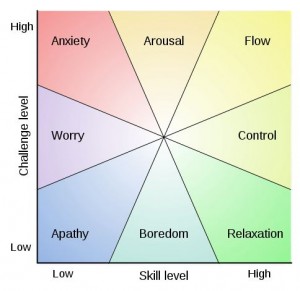“Sing through me, Muse, and let me tell the story of that wily man, the wanderer, who endured an age of troubles, after he ravaged Troy’s proud heights.” – Homer’s Invocation to the Muse, The Iliad
“… Whatever kind and sort of book this is, O Muse, let it live for longer than this generation – in fact, eternally.” – Catullus, Carmen
“Muse” – from the Ancient Greek: Μοῦσαι, moũsai: possibly from a proto Indo-European a root word meaning “think”). In Greek mythology, the Muses are the goddesses of inspiration in literature, art, and science, and were considered the source of knowledge and the arts conveyed orally prior to the invention of writing, including lyrics and myths.
Most writers are familiar with the concept of writer’s block – the experience in which a writer finds creative writing difficult or impossible to do. Fewer writers are perhaps familiar with the concept of the Muse as it relates to writer’s block.
As noted above, the concept of the Muse dates back to ancient times. In Greek mythology, there were nine Muses. Each specialized in a branch of the arts – from tragedy to comedy, from history to epic. Back in Homer’s day, it seems, a writer or a poet with “writer’s block” would have felt his Muse had abandoned him. I am sure that, like blocked writers today, the Muse-less writer would fritter away his time catching up on the latest news and trivia (in the market square – the Google of its day), drowning his sorrows at the local watering hole, or finding a fellow poet/writer and keeping him from working on his latest. (“If I can’t go to my happy place, no one goes to his/her happy place.”)
But let us set aside the ancient concept of the Muse, and pick up a 20th century concept that has much currency today: that of Flow, the mental state “in which,” per the Wikipedia definition, “a person in an activity is fully immersed in a feeling of energized focus, full involvement, and success in the process of the activity.”
Flow, clearly, is the opposite of writer’s block. It is the desired state of operation for writers – you sit down at your keyboard and the words and ideas tumble out blissfully and with polished perfection. Ah, flow!
Mihaly Csikszentmihalyi, the researcher who originated the concept of flow, reported that several of the subjects he studied reported that “flow” was like being carried along on water. The idea, in other words, finds you – not vice versa; you are just the conduit. Before Csikszentmihalyi, we used the word “inspiration” to describe this phenomenon.
Here’s what’s useful for writers: Csikszentmihalyi determined that you can create conditions that are conducive to “flow.” Here’s how:
- Set about a task that has direction and structure; have an activity with a clear set of goals.
- Have the inner confidence that you have what it takes to meet the challenges of the goals you have set for yourself with this task.
- Get “clear and immediate” feedback as you work as this enables you to maintain the flow state.
 Admittedly, the first two “conducives” are less challenging for writers than the third. (Self-editing, as you go along, needs to be done with a light touch. That’s what second, third and sixth drafts are for.)
Admittedly, the first two “conducives” are less challenging for writers than the third. (Self-editing, as you go along, needs to be done with a light touch. That’s what second, third and sixth drafts are for.)
Still, Csíkszentmihályi’s insights are useful. At left is a graph he created which illustrates his theories about flow in terms of “challenges set” and “skills mastered.”
Now, with all of the above said, here are my views on the Muse/flow – what I’ve found helpful when bumping up against writer’s block:
Getting the Muse (Flow or Inspiration) to come to you is a bit like being out in the wild woods and hoping a fawn or a deer will approach you. If you sit there anxiously, it’s not gonna happen.
But if you relax and tune in to the stillness and the rhythms of the forest, you change within; you are no longer an intruder – you are part of the scene. The animals sense it; they approach.
Personally, I’ve found that the first five or ten minutes in the “woods” of writing is the most difficult – painful even – but that, if I just start, and then perservere, the wave of flow does come along to carry me into the creative work. (Yes, some days the “wave” is stronger than on others, but it is reliably there.)
Following are two quotes often invoked when starting creative endeavors. Read them with the Muse/flow in mind, and they make all the sense in the world:
“Whatever you do, or dream you can, begin it. Boldness has genius and power and magic in it.” – Goethe
“Leap… and the net will appear.” – Zen saying
Happy Writing!
Image: Jean-Auguste-Dominique Ingres. Luigi Cherubini and the Muse of Lyric Poetry. 1842

![526px-Ingres_cherubini[1]](http://www.jennysoft.com/wp-content/uploads/2012/07/526px-Ingres_cherubini1-263x300.jpg)
No Comments